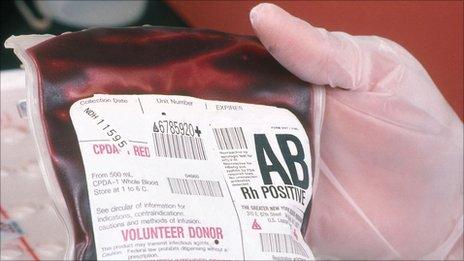Gay blood donation: Lifetime ban in NI on gay men donating blood is to be lifted
- Published
Health Minister Michelle O'Neill said she took the decision based on the evidence presented to her
Northern Ireland's lifetime ban on gay men donating blood is to be lifted.
Health Minister Michelle O'Neill said the new policy will come into effect on September 1.
At present in Northern Ireland, any man who has had sex with another man is banned from giving blood permanently.
A ban on gay men donating blood was brought in across the UK during the 1980s AIDS crisis, but was lifted in England, Scotland and Wales in November 2011.
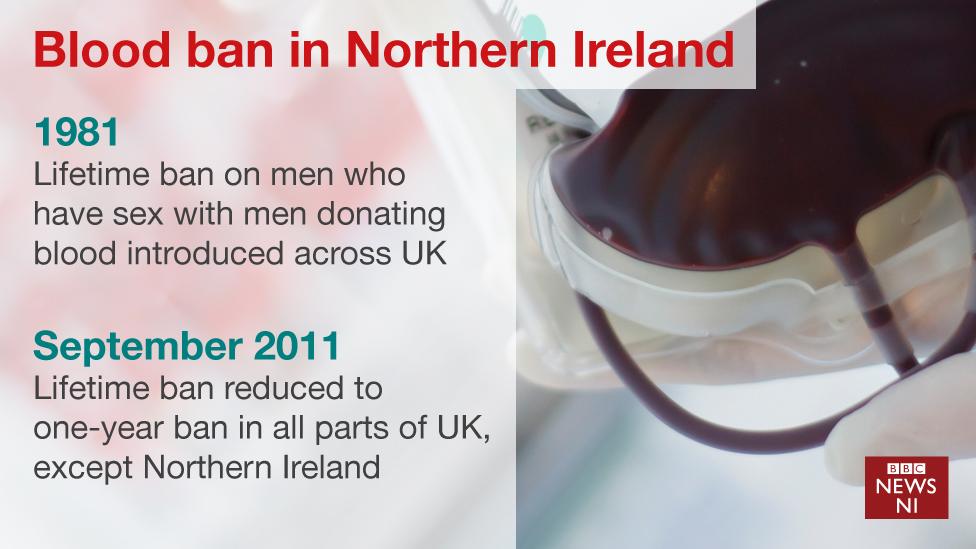
Northern Ireland retained the permanent ban.
Ms O'Neill said on Thursday that she would lift the ban in favour of a '"one-year deferral system" as is the case in the rest of the UK.
This means that gay and bisexual men can give blood one year after their last sexual contact with another man.
Michelle O'Neill said: "The safety of donated blood depends on two things: donor selection and the testing of blood.
"Every blood donation is tested for HIV and a number of other organisms.
"Not even the most advanced tests are 100% reliable, so it is vitally important for every donor to comply with any deferral rules that apply to them.
'Common sense'
"I will instruct the Northern Ireland Blood Transfusion Service accordingly."
Mark H Durkan, from the SDLP, said the ban had led to a "ludicrous situation" in which gay men could not donate blood but people in Northern Ireland could still receive blood from the rest of the UK "where there was no such ban".
"Today is a victory for common sense and for equality," he added.
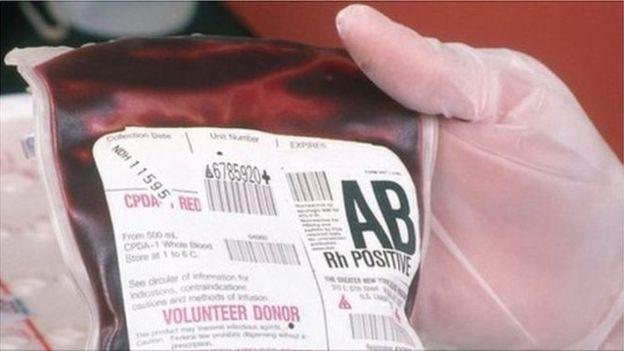
A lifetime ban on gay and bisexual men giving blood came into force across the UK during the 1980s AIDS crisis
"I only regret it took so long for the Department of Health to lift the ban and remove some of the prejudice against gay people in the north."
Alliance Party MLA Kellie Armstrong described the lifting of the ban as a "massive step towards true equality".
"I am pleased action has finally been taken and an absurd blood ban that everyone could see was not based on available evidence but rather discrimination has been ended."
Green Party leader Steven Agnew MLA agreed: "All blood is screened for safety and it is only right that this ban be lifted after it was found that the Department for Health had no evidence with which to uphold it.
"It is wrong that it has taken years of campaigning and around £50,000 of public money has been wasted in opposing this change by previous ministers."
HIV Charity
Jacquie Richardson from Northern Ireland's HIV charity Positive Life said the ban "perpetuated inequality".
She said it did "nothing to reduce the stigma that is attached to men who have sex with men and who want to donate blood for the good of others."
The director of the Rainbow Project John O'Doherty said they had been campaigning for an end to the "unnecessary ban" for over a decade.
He has praised Ms O'Neill for making the announcement after eight days in the job which he says demonstrates "her commitment to prioritising issues affecting LGB&T people in Northern Ireland."
In May, a man took a legal challenge against the ban to the UK's supreme court.
This came after the Court of Appeal in Belfast ruled in March that it was up to Stormont's health minister whether the lifetime ban should be lifted.
The court also dismissed a ruling in 2013 that former health minister Edwin Poots had acted irrationally or with apparent bias by keeping the ban in place.
- Published2 June 2016
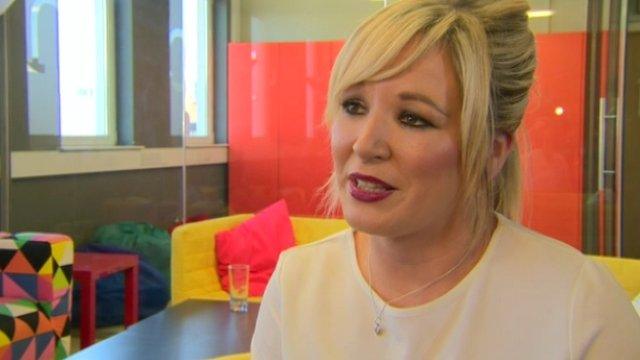
- Published9 May 2016
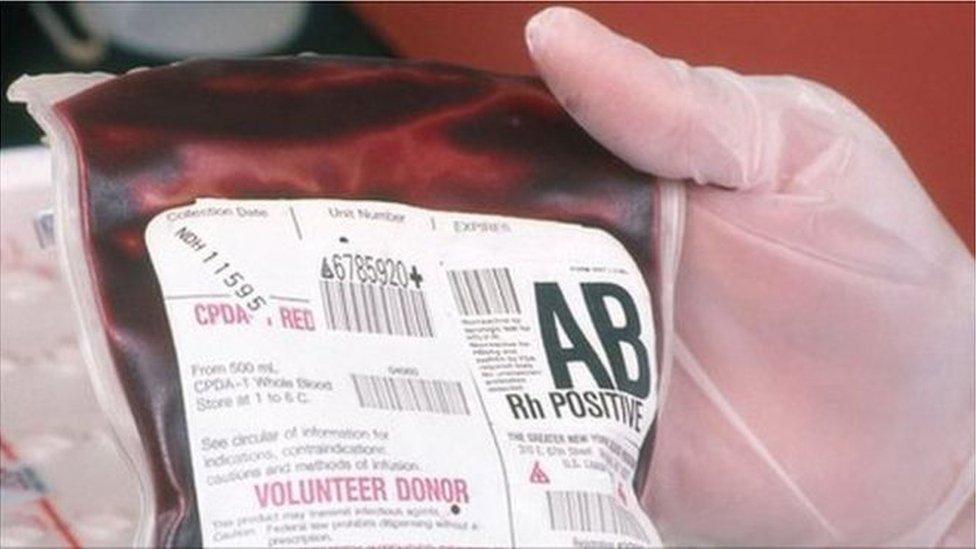
- Published5 February 2015
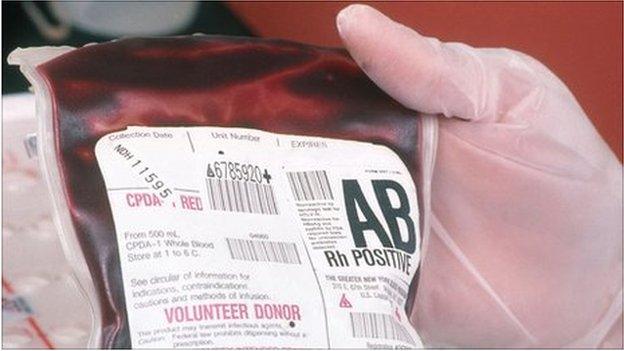
- Published8 September 2011
